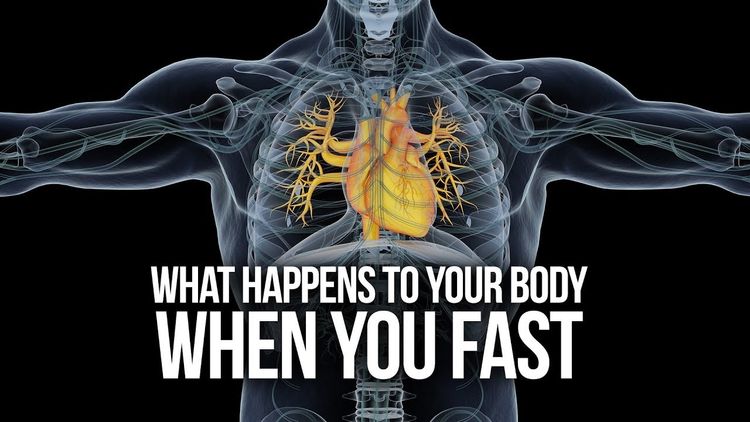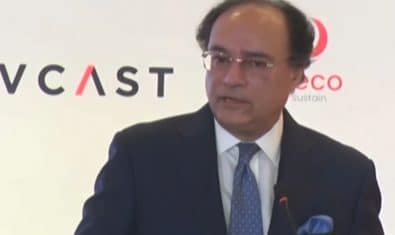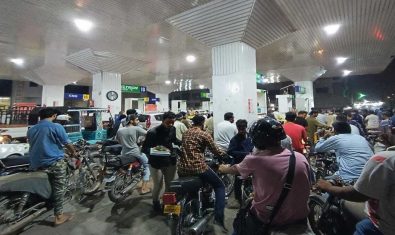The holy month of Ramzan brings several spiritual benefits with it. But did you know that there is more to fasting than just that? Not only does it help the believers in rejuvenating their faith, the benefits of fasting reach our daily lives and cause major shifts in the way our bodies operate.
Avoiding food is a major part of fasts and maintaining it for around 10 to 20 hours (depending on where you live), has various effects on the human body. Today, we tell you what really happens to your body when you perform a dry fast (in Ramzan) and depending on how long you fast for, here’s what happens to your body.
What Happens to Your Body When You Fast?
As you eat, food is broken down into nutrients as it is processed through different phases of the digestive system. These nutrients are absorbed into your blood stream while your insulin and blood sugar levels rise. About half of what you eat is turned to fat and stored inside different parts of your body.
Here’s what happens in Ramzan as you go about your daily routine.
Stage 1
You eat during the first Sehri of Ramzan and your digestive system starts working as normal. Food is turned into nutrients and spread to cells all across the body.
The digestion process takes hours from the time you have your last bite. Usually about eight hours after you eat, your body starts to crave for more food.
In the normal state, body glucose is stored in the liver and muscles. It is the main source of energy for you to move. The main metabolic functions are performed by the brain, liver and muscles using glucose. During a fast, all the glucose that is stored in your body is used up first.
As the body’s need for glucose rises, it begins to use fat as its next source of energy, converting it to fuel itself. Until its Iftar time, your body continues to burn up fats in your body, resulting in weight loss and that too without any serious side effects.
Stage 2
As the month of Ramzan progresses and you continue to fast, your body begins to learn from your new schedule. Instead of relying on glucose from your food, it shifts to fat as your main source of intake and burns through it first.
Since Muslims fast only from dawn to dusk, the body’s energy is replenished daily during Sehr and Iftar. This helps train the body to avoid using muscle or protein as a source of energy.
Only during long fasts that last several days does your body begin to eat through your muscles resulting in several side effects. This is also called starvation. But since Muslim fasts are broken just before that, our body only trains itself to the routine making the body stronger and more resilient to challenging tasks.
Stage 3
Since fat is used as an energy source during Ramzan, your muscles are preserved. This eventually leads to reduced cholesterol levels. The benefit here is that, for diabetes patients, you gain better control over it as your blood pressure is normalized.
After a few days, a high level of endorphins (hormones related to mood) appear in your blood making you more alert and give you a feeling of well-being. Your brain becomes more active and your mental awareness increases.
Recent research has shown that once you fast, damaged cells are consumed making way for new white blood cells when you replenish you energy.
According to an anesthetist from Oxford, dry fasting for such a duration can introduce a minor detoxification process which can have positive effects throughout your body.
List of Bodily Benefits
To put it simply, we can say that the following advantages can be availed by Muslim believers who fast during Ramzan:
- Appropriate weight loss
- Transition from food requirement to consuming latent fats
- Better control in diabetes
- Reduced or normal blood pressure
- Body becomes more alert
- Mental awareness rises
- Immune system becomes stronger
- Toxins in your body get excreted
Busting the Myths
Since the web is full of stories which claim several other benefits of fasting, we will try and debunk several of the myths surrounding fasts which are not applicable to Muslims or are simply not possible.
- “Muscles and Proteins are consumed during first few days of Ramzan leading to headaches, dizziness, bad breath, coated tongue and more.” – This is not true since we break our fast before muscles start getting affected.
- “Muscle consumption is actually detoxification and cleansing.” – Untrue, since its body’s way of fueling itself in emergencies. Reducing your muscle tissue is not a physical benefit.
- “Skin becomes oily during first week of Ramzan” – There’s no mention of any effects which can cause oily skin during the first few days of fasting.
- “You may feel pain in your body during cleansing and detoxification as your body is using all its resources on repairing organs” – The argument is simply incorrect. We sleep and the body repairs itself but it doesn’t hurt.
Final Remarks
Simply fasting does not guarantee you the benefits mentioned above. A binge-eating spree or by stuffing yourself with oily foods, there’s no doubt what happens instead. Not only does it make you fatter but you also don’t receive the maximum possible benefits of fasting.
After all, fasting is all about teaching self-control. Moderation is the key word here.
Hope this post helped you learn about the numerous health and bodily benefits that you can accrue during the holy month of Ramzan. Happy fasting!



























Roze Se Sehat Achi Hoti Hai :
But Hamare Halat Aise Hai K Sehat Kharab Ho Rahi Hai :
Hum Sehri Main Zaida Khate Hai Q?K Pura Din Nahi Khanaa Is Liye
Or
Hum Aftari Zaida Kar Lete Hai Q?K Pura Din Nahi Kahaya Is Liye :
We have to be control on eating foods !
Apni baat karo bhai, main to Sirf Sehri karta hon 2 rotian aur Iftari main fruits bus. beech main kuch nahi.
Main :
Sehri Main : Ek Plate Chawal, Ghost, Chai, Dhood, Pai Bus
Aftari Main : 5 Pakore, 3 Samose, 15 Alo Chips, 5 Alo Chaap, 5 Began, 3 Mirch Fry, 3 Glass Drink, 2 Glass Pani, Phir Mixture, Chai End
Tasbeeh k daano par parh k khatay hogay aap to phir, aisay to counting aur yaad rakhna mushkil hojata hoga. ya phir digital counter ?
Bachpan Se Adat Hai :
Human body will only respond accordingly as mentioned in the article only if we have a controlled food intake at iftar and sahoor.
By the way I felt my skin become more oily during ramadan.
it has nothing to do with Ramadan, but the humidity in weather, its humid season, not only you, everyone feels oily.
Right.
Oily…?
It has nothing to do with Ramadan or perhaps humid weather…
I’ve an oily skin condition myself, brother… And the biggest cause of excessive oil is; surprise; oily foods…!
We eat fried food almost daily during Ramadan… That oil has to go somewhere, my friend…! Our body use most of the oil to make fat… But during Ramadan, we just use so much greasy food that it’s just too much for our bodies and hence most people witness an “oilier skin” and increased cholesterol levels…
So its best to avoid greasy food; not only in Ramadan; but in your routine life as well…
Good Day!
Thanks. That’s may be the reason.
Aur jo har dosry din truck ult jata hy wo fidamand hy ya nuqsandeh?
Be moderate in eating, don’t eat excessive oily items.
Don’t sleep right after eating i.e Sehri or aftari.
Do some walk after both eatings. After sehri or aftar stay up for almost 1 hour then sleep.
Hahahahah Khattay he soya matt kero thora chal phir ke soya kero and also dont drink too much water after sehri truck kalti nai hoga.
Most people in Pakistan actually ‘gain’ weight during Ramadan because of bad eating habits…! And I am no exception…!!!
Anyhow, brilliant article… But it forgot to mention ‘starvation mode’ also known as ‘survival mode’…
The starvation mode in body kicks-in when we suddenly stop eating food for prolonged periods, such as fasting… Our bodies go into a smartphone’s ‘battery saver’ like mode; usually called ‘survival mode’ which greatly slows down the metabolism…
Metabolism is the process of extracting energy from food we consume; that energy is used to power our muscles etc…
There’s a reason why fat women complain about weight gain when they follow a strict dieting plan…! It’s the starvation mode to blame which involuntarily kicks-in when their bodies witness a massive deficit in food intake…
But after several days of limited diet (about 2 weeks, I’d say), the body goes back into normal mode; and hence one might witness a weight loss in later days of Ramadan, provided he or she eats healthy during Iftar and Sehar and avoid greasy junk foods, of course…!
So better understand these simple facts before fasting… And most importantly ‘dieting’…!
Good Day!